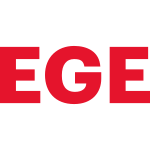L’Union Européenne négocie en secret le traité Anti-Counterfeiting Trade Agreement
Le traité ACTA est considéré comme une menace potentielle par les partisans européens du logiciel libre car, selon eux, la légalisation de l'installation de dispositifs de filtrage sur les ordinateurs des individus peut amener des brèches de sécurité à grande échelle. A cela s’ajoute la légalisation des brevets logiciels et les autres instruments d'anti-souveraineté à l’étude. Le secret entourant ces négociations est considéré par un certain nombre d’informaticiens français comme une ineptie.
Ci-jointe la protestation du réseau Fondation for a Free Information Infrastructure diffusée le 10 novembre 2008 à Bruxelles :
The EU Council of Ministers refuses to release secret Anti-Counterfeiting Trade Agreement (ACTA) documents. The Foundation for a Free Information Infrastructure (FFII) had requested these documents to make public and parliamentary scrutiny possible. After the Council's refusal, the FFII sent in a confirmatory application, for the EU Council to review its position, as allowed by Article 7(2) of the regulation dealing with public access to such documents.
ACTA's secrecy fuels concerns that the treaty may give patent trolls the means to extort companies, undermine access to low-cost generic medicines, lead to monitoring all citizens' Internet communications and criminalize peer-to-peer electronic file sharing.
The EU Council refuses to release the secret documents stating that disclosure of this information could impede the proper conduct of the negotiations, would weaken the position of the European Union in these negotiations and might affect relations with the third parties concerned.
The FFII reaffirms its application stating that the legislative process in the EU has to be open. If the agreement will only be made public once all parties have already agreed to it, none of the EU's national parliaments nor the European Parliament will have been able to scrutinise its contents in any meaningful way. To prevent this from happening, it may be necessary to renegotiate ACTA's transparency.
The FFII's confirmatory application letter questions ACTA's secrecy in no uncertain terms: "The argument that public transparency regarding 'trade negotiations' can be ignored if it would weaken the EU's negotiation position is particularly painful. At which point exactly do negotiations over trade issues become more important than democratic law making? At 200 million euro? At 500 million euro? At 1 billion euro? What is the price of our democracy?"
The Canadian government released documents under the Access to Information Act that provide additional insights into the secretive nature of the negotiations.
If the EU Council again refuses to release the secret documents, the FFII can take the case to the European Court of Justice. An earlier case on transparency of EU legislation took 6 years. By that time ACTA may long have entered into force.
Ante Wessels, FFII analyst, says: "We do not have so much time. The only solution we see is that the parliaments of Europe force the Council to publish the texts by making Parliamentary scrutiny reservations.
Sources :
http://press.ffii.org/Press_releases/FFII_opposes_stealth_legislation%2C_demands_ACTA_documents
http://action.ffii.org/acta/Analysis?action=AttachFile&do=get&target=08-1835en.wes.ws-jj.doc
http://action.ffii.org/acta/Analysis?action=AttachFile&do=get&target=08-1835en.wes.ws-jj.pdf
http://action.ffii.org/acta/Analysis
Ci-jointe la protestation du réseau Fondation for a Free Information Infrastructure diffusée le 10 novembre 2008 à Bruxelles :
The EU Council of Ministers refuses to release secret Anti-Counterfeiting Trade Agreement (ACTA) documents. The Foundation for a Free Information Infrastructure (FFII) had requested these documents to make public and parliamentary scrutiny possible. After the Council's refusal, the FFII sent in a confirmatory application, for the EU Council to review its position, as allowed by Article 7(2) of the regulation dealing with public access to such documents.
ACTA's secrecy fuels concerns that the treaty may give patent trolls the means to extort companies, undermine access to low-cost generic medicines, lead to monitoring all citizens' Internet communications and criminalize peer-to-peer electronic file sharing.
The EU Council refuses to release the secret documents stating that disclosure of this information could impede the proper conduct of the negotiations, would weaken the position of the European Union in these negotiations and might affect relations with the third parties concerned.
The FFII reaffirms its application stating that the legislative process in the EU has to be open. If the agreement will only be made public once all parties have already agreed to it, none of the EU's national parliaments nor the European Parliament will have been able to scrutinise its contents in any meaningful way. To prevent this from happening, it may be necessary to renegotiate ACTA's transparency.
The FFII's confirmatory application letter questions ACTA's secrecy in no uncertain terms: "The argument that public transparency regarding 'trade negotiations' can be ignored if it would weaken the EU's negotiation position is particularly painful. At which point exactly do negotiations over trade issues become more important than democratic law making? At 200 million euro? At 500 million euro? At 1 billion euro? What is the price of our democracy?"
The Canadian government released documents under the Access to Information Act that provide additional insights into the secretive nature of the negotiations.
If the EU Council again refuses to release the secret documents, the FFII can take the case to the European Court of Justice. An earlier case on transparency of EU legislation took 6 years. By that time ACTA may long have entered into force.
Ante Wessels, FFII analyst, says: "We do not have so much time. The only solution we see is that the parliaments of Europe force the Council to publish the texts by making Parliamentary scrutiny reservations.
Sources :
http://press.ffii.org/Press_releases/FFII_opposes_stealth_legislation%2C_demands_ACTA_documents
http://action.ffii.org/acta/Analysis?action=AttachFile&do=get&target=08-1835en.wes.ws-jj.doc
http://action.ffii.org/acta/Analysis?action=AttachFile&do=get&target=08-1835en.wes.ws-jj.pdf
http://action.ffii.org/acta/Analysis


